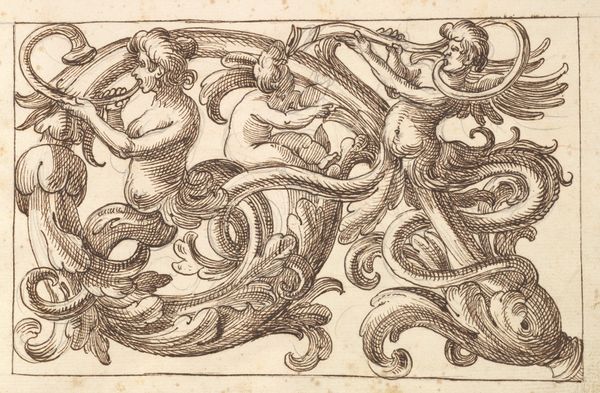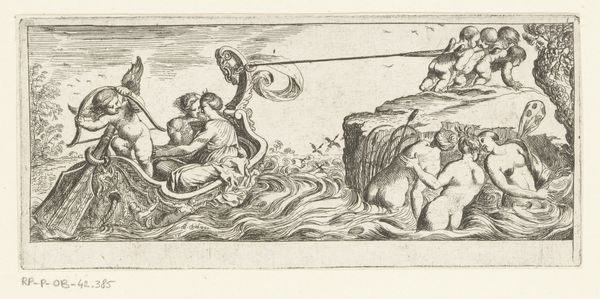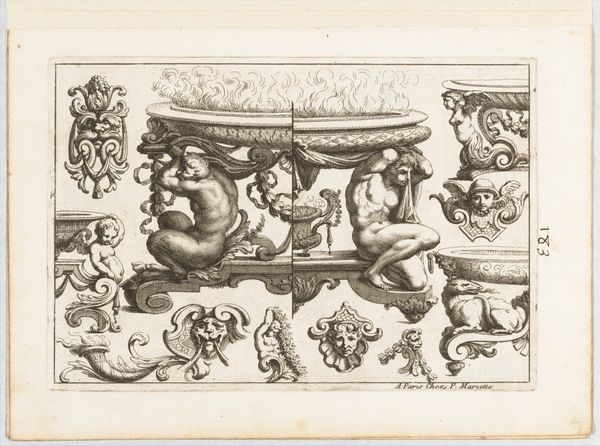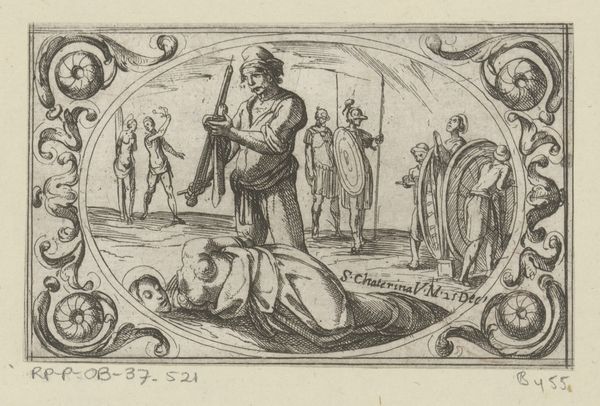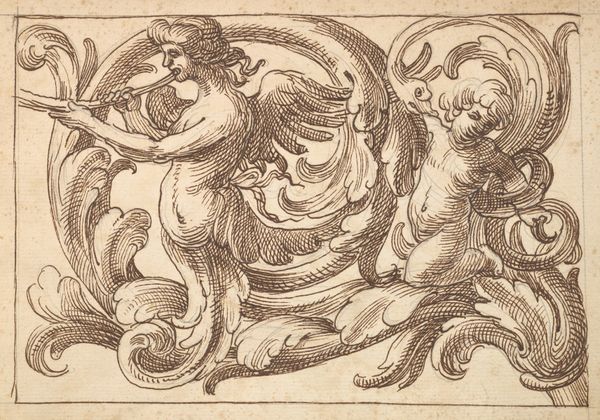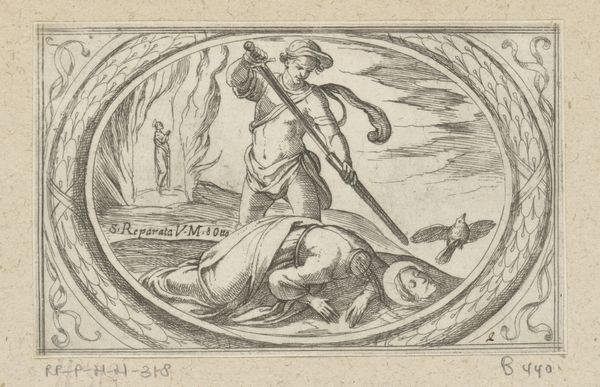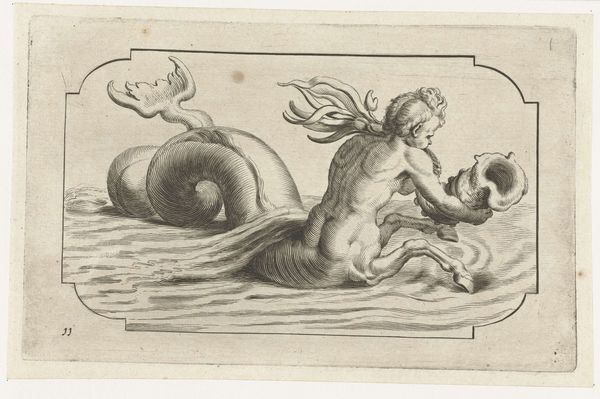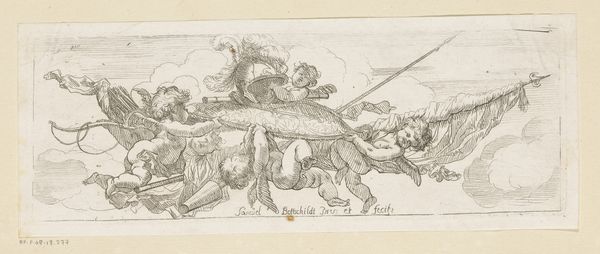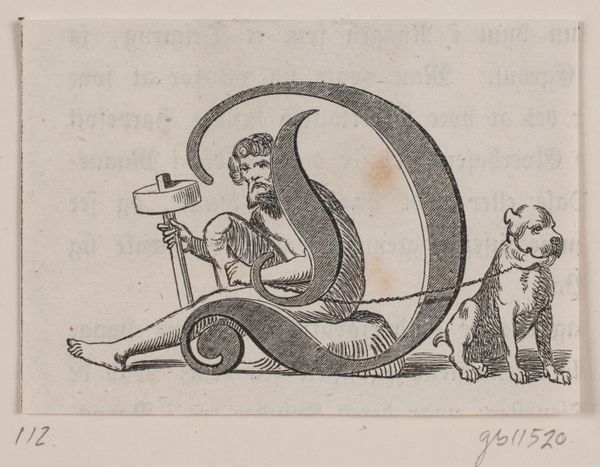
drawing, ink, pen
#
drawing
#
allegory
#
baroque
#
pencil sketch
#
figuration
#
ink
#
pen
Dimensions: height 81 mm, width 139 mm
Copyright: Rijks Museum: Open Domain
Pieter Jansz. created this drawing of a cartouche, flanked by a man and a putto, in the 17th century. During this period in the Netherlands, cartouches were often used as ornamental frames for inscriptions, coats of arms, or other decorative elements. Here, Jansz. uses the figures of a working man and a putto, a symbol of innocence and divine love, to frame the blank cartouche. There is an interesting tension between the figures. On the left, the working man actively measures the cartouche, emphasizing human agency and skill. On the right, the putto passively sits, acting as a symbol of a more divine influence. The space within the cartouche is left empty, inviting speculation about its intended purpose or message. It is almost as if the viewer themselves is invited to consider what kind of meaning or statement they would put in the center. The drawing invites us to consider the relationship between labor and inspiration, or human effort and divine intervention, in shaping our world.
Comments
No comments
Be the first to comment and join the conversation on the ultimate creative platform.
